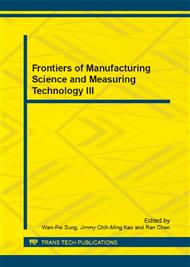p.1440
p.1444
p.1449
p.1453
p.1458
p.1462
p.1466
p.1470
p.1474
Sleep Analysis Based on Non-Load Detection Technique and Fuzzy Logic
Abstract:
Polysomnogram (PSG) has been the standard of the Sleep Analysis for many years. However it is complicated to operate, and attaches a lot of electrodes on the body. So the development of a non-load sleep architecture stage is necessary. Under the support of non-load detection technique, a new method for sleep architecture which takes advantage of variation of heart beat interval, respiration period body movement and the other physiological parameters during sleep has been studied. Due to sleep architecture it differs person to person, so the result of sleep architecture stage involves great uncertainty, using fuzzy logic theory achieves uncertainty analysis, and it can produce the more accurately result. This method has been tested on with PSG result as contrast, sleep analysis based on non-load detection technique and fuzzy logic has a high compliance rate. The method is qualified as being useful in clinical application.
Info:
Periodical:
Pages:
1458-1461
Citation:
Online since:
September 2013
Authors:
Keywords:
Price:
Сopyright:
© 2013 Trans Tech Publications Ltd. All Rights Reserved
Share:
Citation:


